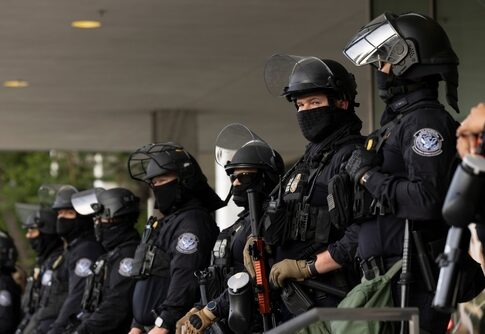An ICE agent’s use of deadly force during a Chicago immigration enforcement operation has sparked debate over federal immigration policies.
ICE Agent’s Life Threatened During Enforcement Operation
On September 13, 2025, a dramatic incident unfolded in Franklin Park, a suburb of Chicago, when ICE agents attempted to stop Silverio Villegas-Gonzalez, a 38-year-old undocumented immigrant with a criminal record. As agents tried to halt his vehicle, Villegas-Gonzalez refused to comply, instead accelerating and dragging one of the officers along with the car. In a moment of life-threatening peril, the agent discharged his weapon, fatally injuring the suspect. Both the agent and Villegas-Gonzalez were immediately hospitalized, with the suspect later pronounced dead.
The Department of Homeland Security (DHS) has confirmed the agent’s stable condition and highlighted the officer’s adherence to training protocols. This incident has intensified the ongoing debate regarding the enforcement of immigration laws, particularly in cities like Chicago, known for its sanctuary city status and resistance to federal immigration policies.
Escalating Tensions Over Immigration Enforcement
The tragic encounter underscores the fraught dynamics between federal enforcement efforts and local policies in sanctuary cities. The Trump administration’s recent push to intensify deportation efforts, including the potential deployment of National Guard troops to Chicago, has heightened local-federal tensions. Chicago officials have historically resisted federal immigration initiatives, arguing for the protection of immigrant communities and opposing aggressive ICE operations. This incident may serve as a catalyst for further debate on the balance between public safety and immigration enforcement.
Previous ICE operations in Chicago have faced legal challenges and public protests, as local communities express concern over the use of force and the impact on immigrant families. The recent shooting has reignited these discussions, with civil rights groups calling for independent investigations into ICE’s enforcement tactics and the proportionality of force used.
Implications for Federal and Local Relations
As investigations continue, the incident’s short-term effects include increased scrutiny of ICE operations in Chicago and potential protests or public outcry. In the long term, this event may influence policy debates on the relationship between federal and local authorities, particularly regarding immigration enforcement and use-of-force protocols. The broader Chicago community, already wary of increased federal presence, may see renewed advocacy from groups on both sides of the immigration debate.
The incident also raises questions about ICE’s training and engagement protocols, potentially prompting reviews to ensure that enforcement actions are conducted safely and with respect for community concerns. As the nation grapples with these complex issues, the need for dialogue between federal agencies and local governments remains critical.



The proper term is conspiracy. You article seems to insinuate that ICE actions are improper. Chicago “sanctuary policies” are criminal; in violation of federal. You don’t get to claim immunity from the law. STUPID ARTICLE that seeks to foment insurrection, a conspiracy as well. report facts not your BS